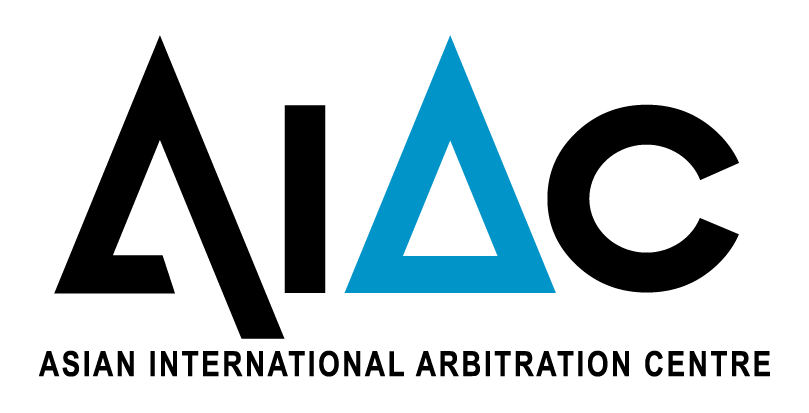ANNOUNCEMENT
February 18, 2016
Gamuda Inks MoU With KLRCA, MSA And SCL To Build Admin Talent Platform
*This article was originally published in The Malay Mail dated 18th January 2016 by Stephanie Augustin.
KUALA LUMPUR — Gamuda Bhd signed a memorandum of understanding (MoU) with three construction law and arbitration organisations to deliver in-house lectures and workshops based on reallife contractual disputes and case law last Friday.
Gamuda is the sole financier for the programme, having spent a ‘few hundred thousand ringgit’ since Sept 2014, said Gamuda Engineering Sdn Bhd managing director Ubull Din Om.
“With the advent of increasingly complex delivery models such as the project delivery partner (PDP) model used in the MRT projects, as well as the LRT3 and Pan Borneo Highway projects.
“All these mega infrastructure projects have high impact to Malaysia and requires professional contract administration skills to deal with them on a daily basis.,” he said.
Ubull was speaking to the press after inking the agreement with Kuala Lumpur Regional Centre for Arbitration (KLRCA), Malaysian Society of Adjudicators (MSA) and the Society of Construction Law Malaysia (SCL) at Menara Gamuda here.
The first batch on Sept 2015 saw 27 participants. Following the signing of yesterday’s MoU, 24 other Gamuda staff members joined in the second batch. About half of the participants are engineers, with the rest mostiy comprised of contract promotion staff.
Though the participants are mainly from the MRT projects, he said Gamuda does not really see contractual disputes rising from the MRT side of its business, but is preparing for future orderbook.
“As we advance further in multiple projects, we will be working with more foreign companies on aspects that we are still unable to do locally such as systems and track works. So we will need people to deal with that, contractually and iron out any issues with jurisdictions.
“We are also developing talent to take on challenges with new construction areas such as LRT and MRT. For the Penang Transport Masterplan meanwhile, we may have monorail and tram components. All these upcoming activities make people Gamuda’s most important asset,” said Ubull when queried about the constructor’s talent development plans.
“This is why this programme which involves reallife situations and case laws will come inhandy to staff confidence and exposure. Gamuda is going to expand further our orderbook so we need to prepare people for this.”
As of Oct 31, 2015, the group’s orderbook stood at RM800 million. Gamuda has statedits interest in the LRT3, Pan Borneo high way, GemasJB double tracking and High Speed Rail projects.
Once this programme is proven successful after the first few batches, we will be expanding it to EPC (engineering procurement construction) contractors.
“Why these partners? We believe they are the leading societies with prominent members that have a wealth of practical experience dealing with complex construction issues. Our participants can have accelerated learning with their guidance,” Ubull added.
Gamuda and its three partners hope that this initiative will set the blueprint to raise the standards of construction professionals.
During the one year course, participants take every other Saturday out of their weekends to learn the skills required to manage risks on their respective projects, fronts and disciplines whether engineering, quantity surveying, planning or claims assessment.
Gamuda contributed RM10,000 each to MSA and SCL for their respective roles in putting together the programme syllabus.
KLRCA director Datuk Sundra Rajoo pointed out that adjudicators have almost become the default dispute resolution mechanism in the Malaysian construction industry because of the Construction Industry Payment and Adjudication Act 2012.
“The Act came into effect on April 15, 2014. Last year alone we saw 200 cases, and this year we are expecting at least 300 to 350 disputes, mainly revolving around payment issues.
“We will try to overcome these disputes through training, so issues can be resolved quickly when administrators know what documents to prepare, records to keep and how to manage a contract,” he said.
Sundra added that there is ‘backward pressure’ coming from the dispute resolution mechanism that works very quickly.
“Businesses know now that if they cannot deal with a dispute inhouse, it is going to be dealt very quickly beyond your control.
So your people have to be trained to handle it at that point before it goes to arbitrators.” He continued: “With universities being largely academic, the construction industry has realised that we need to kick off inhouse training first, working together to create a module that will be accepted by the industry at large.
“That is why we have come into this partnership. Instead of only getting universities to do it, this programme will be largely practical so employers will see value straightaway.”


